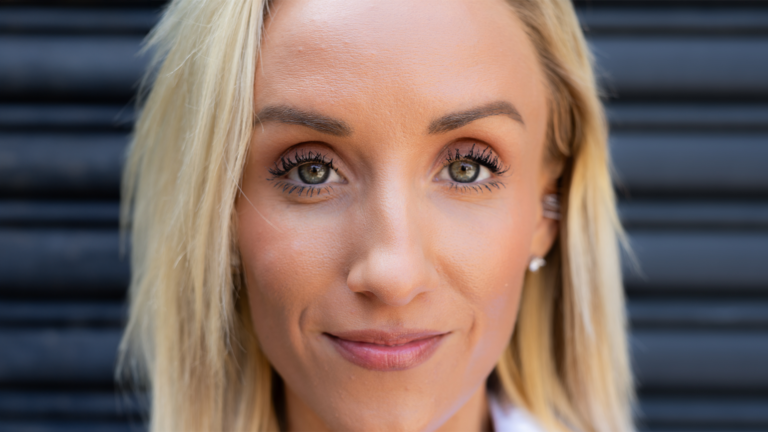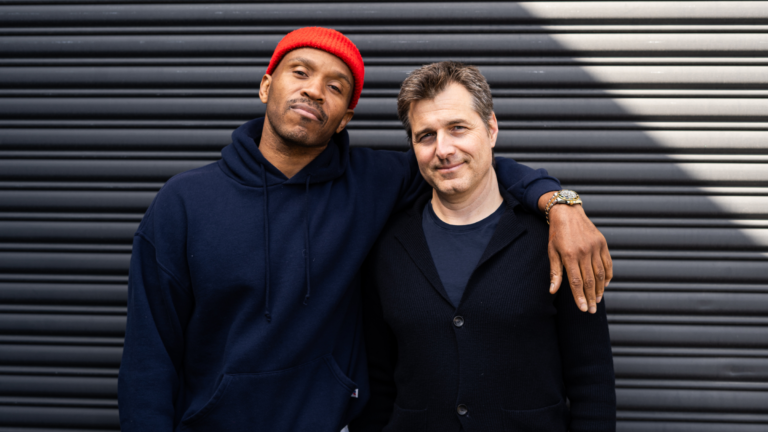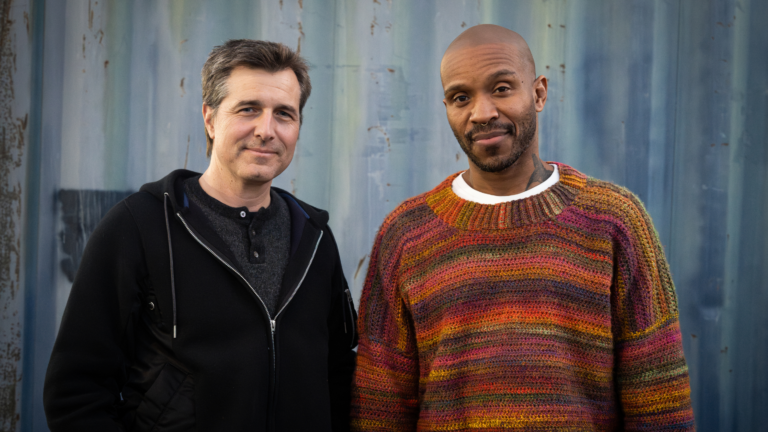This week’s conversation is with Zak Williams, the son of the late Robin Williams and co-founder and CEO of PYM, a mental wellness company rooted in the belief that there is a world where someone can be the best version of themselves simply by establishing easy daily rituals that help support their mind and overall wellbeing.
Zak is a US trustee of the international advocacy organization, United for Global Mental Health, a board member of mental health awareness non-profit Bring Change 2 Mind, an advisor to national policy organization Inseparable, and the mental health tech platform Project Healthy Minds.
September is Suicide Prevention Awareness Month, so it’s an important time to honor those who have been impacted and help others who might be struggling realize there’s alternative options.
I’ve personally been affected by suicide and Zak opens up about the impact it had on him in this conversation, too.
We discuss his experience growing up with an incredibly successful parent – the conditions that led to Zak’s mental health challenges – and how the same practices he used to right the ship, can be just as applicable in your own life.
“About six years ago, around the time I was diagnosed with post-traumatic stress disorder, I found that a commitment to service was a way to find happiness and healing.”
In This Episode:
Why mental health?
Mental health for me started, or at least thinking about mental health, my personal well-being, started very early on in my life. I had very obsessive traits as a child, a lot of thinking involving symmetry and repetition. That manifested through my teens and early adult life in terms of anxiety and trying to manage obsessive thinking. That really came to a head after my dad died by suicide because I was diagnosed with post-traumatic stress disorder and was using things like alcohol to self medicate, to quiet my thoughts, to quiet my mind, and that wasn’t tenable in the longer term for me.
Healing through helping others
The thing that really became front and center for me is working out ways in which I could heal. What I found to be really insightful and helpful for me is advocacy, learning about how I could support others and support other organizations to heal from my personal experiences and traumas. That’s something that became a heading in my life about six years ago, around the time I was diagnosed with post-traumatic stress disorder, and found that, actually, a commitment to service was a way to find happiness and healing.
His relationship with his father, Robin Williams
In terms of his genius and brilliance and how he went about being a parent, for me, very much, I saw the quiet more introspective side of that. I found us thinking through, focusing on more of the fun technology oriented things that we could do together. We played a lot of computer games together. He was very appreciative and a huge fan of science fiction, everyone from Harlan Ellison to Isaac Asimov, everything in-between. That’s how we bonded… I loved spending time with him when he was in his quiet, introspective modes.
What he admired about his dad
For me, the times that I would be in awe of him was when he was interacting with others. He was just the kindest person. That might sound general. When he was interacting with others … He was interacting with others a lot. But just seeing his compassion and empathy for others and how he would literally give time to anyone to learn about them and show up, for me, that was what impressed me most about him in terms of a characteristic and trait. He was just the nicest, most compassionate person. I mean, I could go into dozens of times when that specifically stood out in my mind.
Creating a mental health hygiene ritual
Well, the thing that I discovered was really, really transformatively helpful for me was developing a mental health hygiene ritual, so checking in, understanding what it is I’m feeling when I get up in the morning. Am I experiencing stress? Am I experiencing anxiety? What does that look like? Then I establish an approach to managing my mental health through the day. So the first thing I do is I establish a gratitude list. What are things I’m appreciative of in my life? What am I feeling appreciative of at the moment? What am I grateful for? From there, I ask myself, how am I feeling? Am I feeling deficient? The third is, what am I doing to connect with people? Personally, I’m in recovery. I find community support groups and the like to be very helpful for me. I’ve been in recovery for, at this point, over five years. But how can I connect with the people I care about and find opportunities to maintain meaningful interactions? That’s the third part. Then the fourth would be, what can I do for my body?
Taking care of yourself first
So really understand this: what is it that you need personally? I’m speaking for myself. What do I need to feel fulfilled? And then starting to build this superstructure around me that helps me feel fulfilled. That’s really been a core element of mitigating my obsessive thinking – really creating this enriching environment for me. It’s helped me stop feeling so uncomfortable in my own skin and really helped me understand that, if I can take care of myself, then I can show up for others, and then I can be happy. That’s, basically, the transitive equation for me. Taking care of myself enables me to be of service, which in turn enables me to be happy.
Zak’s new life mission
How can you help people learn ways and tools so they can take care of themselves? I would say my life’s mission has become finding opportunities to help people heal specifically their mental health, and so I’ve become a student. I mean, I believe I’ve always been a student, but specific to this path I’ve become a student around finding way to help teach people and to help educate people around ways in which they can take care of themselves.
What would you say to someone who has suicidal thoughts?
For those who are experiencing suicidal ideation, I would say there are opportunities to find happiness and to take a time to really understand what it is that you need personally to be happy. And then work backwards to say, hey, how can we find opportunities to be fulfilled in simple ways? What’s that one step? What’s that next step? What’s that next step that you can do to take care of yourself? That’s the first step along the journey of really finding ways to heal because ideation can feel … It can happen over a long period of time. It can happen all of a sudden. Really, just finding that one action that you can do to feel fulfilled, to take care of yourself, and then stacking it with another action, stacking it with another action. Those positive actions are ways to get out of that state.
Speaking to someone who has lost a family member to suicide:
For a child who has lost a parent to suicide, I would say don’t rush the healing process. Take the time you need to take, to take care of yourself. This is not something that can happen overnight or over a month or in many cases over a year. It just takes time, so don’t rush it. Take the time to process what you’re feeling, and give yourself the opportunity to feel. It needs to come, and it’s something that can feel scary. It can feel anxiety inducing. But the main thing that needs to be done is taking the time for yourself to process at your pace. Then for a parent, I would say a similar thing. Take the time to process at your pace, but also try to really understand that you can’t blame yourself. I would say this for a child too. You’re not to blame for any of this. It really comes down to finding ways to find that path to healing in conjunction with that as well. Find things that make you happy, and find opportunities to layer that into your life on a daily basis. I can’t emphasize that enough. It’s not just about a vacation or a weekend. It’s about finding those opportunities, however small or large, to really take the time to take care of yourself. Really trying to let go of the blame and really saying we deserve to be happy is a part of the healing process that I think is often discounted.
The mission of his company, Prepare Your Mind (PYM)
The mission of my company, which is called PYM … It stands for Prepare Your Mind … is to provide optimal neurotransmitter health while breaking down the stigma associated with mental health. You can find our products at YouCanPYM.com, Y-O-U-C-A-N-P-Y-M.com. You can follow us at @YouCanPYM both on Twitter and Instagram, also TikTok. The reason why I started the company is because I was having an extremely tough time after my dad died by suicide. I was self-medicating using alcohol. When I stopped self-medicating using alcohol and found myself really stressed and anxious, I found natural formulations, specifically amino acids, to be very helpful for me as I went about the healing process, and discovered mental health advocacy as a healing path for the trauma.


